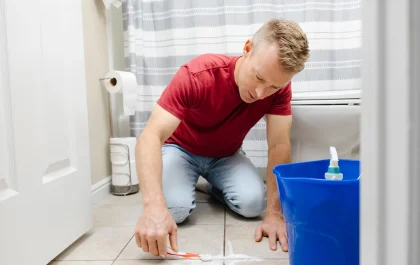Flooring choices are crucial in determining condominium resale values, often providing among the highest returns on investment for pre-sale renovations. When potential buyers tour properties, flooring creates an immediate visual impact and conveys impressions about quality, maintenance, and lifestyle compatibility. Real estate analysts at the Promenade Peak Showflat noted that flooring upgrades consistently rank among the top three features influencing buyer decisions in the luxury segment, with appropriate selections potentially increasing resale values by 3-5% over comparable units with dated or lower-quality floors. This impact varies based on regional preferences, building standards, and target buyer demographics.
Premium materials matter
Hardwood flooring remains the gold standard for condominium resale value, with engineered hardwood gaining popularity in high-rise buildings where structural considerations limit solid wood installation. Oak, maple, and walnut consistently deliver strong returns, with wide-plank formats commanding premium interest from luxury buyers. Natural stone like marble and limestone creates distinctive impressions in entry areas and bathrooms, though maintenance concerns and installation costs limit whole-unit application. These materials perform best in targeted areas where their impact maximises visual appeal without overwhelming practical considerations.
Porcelain tile has emerged as a high-performance alternative combining durability and design flexibility. Modern manufacturing techniques create convincing wood and stone looks that perform well in wet areas while offering exceptional longevity. This balance of aesthetics and practicality makes porcelain particularly valuable in vacation properties or rental-oriented condominiums where maintenance concerns influence buying decisions.
Installation quality counts
Even premium materials fail to increase resale value when installation quality falls short. Professional installation with proper subflooring preparation remains essential regardless of material choice:
- Proper subfloor levelling and preparation
- Appropriate underlayment selection for sound-dampening
- Professional transitions between different flooring types
- Expert pattern alignment and consistent seam spacing
- Careful moulding and trim finishing details
- Proper sealing of natural materials
- Attention to expansion gaps for natural materials
Installation quality differences become particularly noticeable in open-concept condominiums where flooring extends through multiple living areas without walls to break visual lines. Even minor installation flaws become magnified in these spaces when viewed across larger square footage. Sound transmission concerns require special attention in multi-story condominium buildings, with inadequate underlayment potentially creating noise complaints and association violations. Buyers increasingly research building sound requirements before purchasing, making compliance with association standards an essential consideration for resale value.
Market alignment strategy
Successful flooring selections match target buyer expectations within specific markets:
- Entry-level condominiums benefit from durable, low-maintenance options
- Luxury properties require premium materials aligned with buyer expectations
- Family-oriented buildings value scratch-resistant, child-friendly surfaces
- Resort condominiums need moisture-resistant, easy-care materials
- Urban lofts typically embrace industrial-inspired concrete or reclaimed wood
Regional preferences play significant roles in flooring value perception, with northern markets generally favouring warmer wood tones while southern regions prefer lighter, more subtle finishes. These geographical distinctions matter less in luxury segments where international design standards often supersede local preferences.
Home stagers consistently identify flooring as a primary factor in buyer first impressions, noting that dated or damaged flooring can significantly extend market time regardless of other property attributes. This outsized impact on buyer psychology makes flooring among the most financially rewarding pre-sale improvements when aligned with market expectations and professionally installed.



